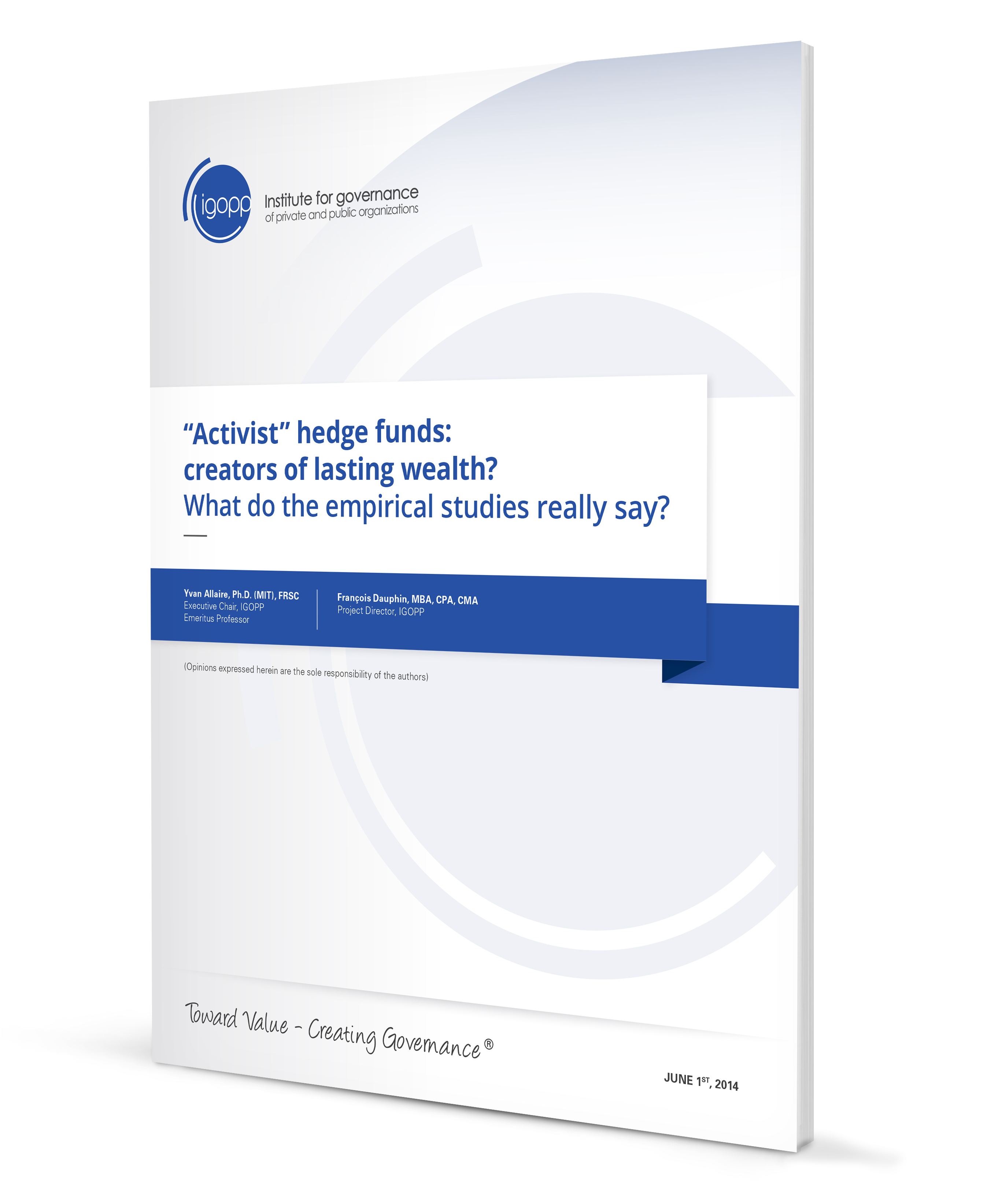
“Activist” hedge funds: creators of lasting wealth? What do the empirical studies really say?
Yvan Allaire and François Dauphin | IGOPPHedge funds have found, in some academic circles, supporters and champions of their enduring contribution to shareholder wealth. Some recent empirical research has triggered an important debate in the American corporate/financial world about the role of board of directors, the rights of shareholders, and the very concept of the business corporation. The terms of the debate run as follows: Are boards of directors responsible for the long-term interest of the company? Or, are there lasting benefits from “activist funds” pushing and prodding reticent boards of directors to take actions these activists consider likely to create significant wealth for shareholders? What are the consequences of this “activism” for other stakeholders and for the very nature of board governance?
A wide range of observers with considerable financial experience and corporate expertise take a dim view of “activist hedge funds”, lambasting them for their greed-fuelled short-term stratagems and their prejudicial influence on the long-term health of companies.
Professor Lucian Bebchuk of the Harvard Law School, argue that these wise people, with loads of practical experience, have no “scientific” basis for their collective judgment that activist interventions are detrimental to the long-term interests of shareholders and companies. Having assembled reams of data and statistics, Bebchuk and his colleagues claim they have “scientifically” demonstrated that hedge funds are not “myopic activists”, but on the contrary bring to corporations they target performance improvements which last long after they have exited the target company.
We carefully reviewed Bebchuk et al.’s paper and reached the following conclusions:
- First, the authors have not demonstrated that activist hedge funds, per se, create lasting, longterm value and bring a long-term perspective to their “activism”. They have merely shown some statistical relationships to provide (weak) support to their thesis. The weight of experience still trumps the results presented in Bebchuk et al.
- Secondly, the most generous conclusion one may reach from these empirical studies has to be that “activist” hedge funds create some short-term wealth for some shareholders as a result of investors who believe hedge fund propaganda (and some academic studies), jumping in the stock of targeted companies. In a minority of cases, activist hedge funds may bring some lasting value for shareholders but largely at the expense of workers and bond holders; thus, the impact of activist hedge funds seems to take the form of wealth transfer rather than wealth creation.
- Thirdly, “activist” hedge funds operate in a world without any other stakeholder than shareholders. That is indeed a myopic concept of the corporation bound to create social and economic problems, were that to become the norm for publicly listed corporations.
- Finally, the Bebchuk et al. paper illustrates the limits of the econometric tool kit, its weak ability to cope with complex phenomena; and when it does try to cope, it sinks quickly into opaque computations, remote from the observations on which these computations are supposedly based.


